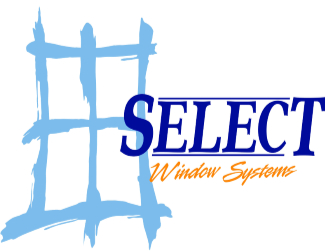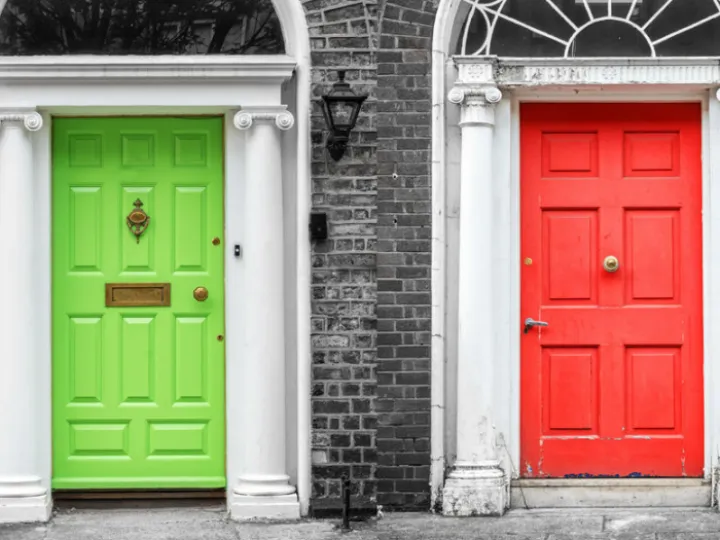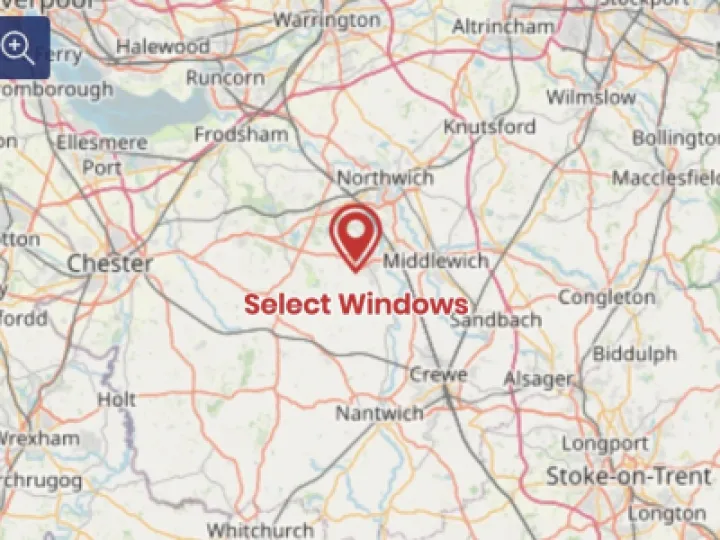The pros and cons of wooden doors
If you are looking for a new or replacement wood door for your home, one of the first considerations is the type of door you will choose. In the vast majority of cases, the choice will be between wood, solid, and hollow core doors, so we will look at these in some detail.
Several factors must be considered when choosing a replacement door, such as its location, style, colour, finish, and required accessories. Some say nothing compares with a real wooden door. Wood is a natural, renewable resource that offers beauty, flexibility, and style.
Budget considerations may determine the choice of a wooden door, the door's location, the available door finishes, and how much time and effort you are prepared to spend on maintenance and upkeep.
When all things are considered, you should have a better understanding of wood doors and finishes and a more informed idea of the best choice of door for your home.
Solid timber doors
Solid wood doors are manufactured from engineered natural wood. They are usually constructed using frames and panels rather than a single piece of wood. The type of wood used in a solid wood door can vary from dense-grained hardwoods such as oak, walnut or maple to loose-grained softwoods such as pine, larch or cedar.
There are hundreds of types of hardwood and softwood, and both have excellent machining properties and can be used throughout the home, not only for doors but also floors, skirting, window frames, furniture, mouldings, veneers – you name it.
Wood can also be waxed, oiled, varnished and weather-sealed to make it useful for internal and external use. Solid wood doors are the traditional choice for many homeowners and are associated with high quality, sturdiness and style.
Advantages of solid wood doors.
Wooden doors from a sustainable source are good for the environment. A solid door can be long-lasting and offer good heat and noise insulation if looked after properly. Here are the main advantages of choosing a solid wood door.
Insulation – wooden doors offer good thermal protection, especially when installed with decent draught excluders and edging sealants.
Soundproofing – the denser the material, the better the soundproofing, but all wood doors offer good insulation against sound as wood easily absorbs sound waves.
Aesthetics – solid wooden doors have great visual and tactile appeal. They not only look good but also look and feel classy and can add enormously to the value of a home.
Disadvantages of solid wood doors
Solid doors look and feel great, but they have some drawbacks, and it's important not to overlook them when making decisions.
Price – solid wood doors are not cheap. They can easily cost twice as much as other doors, and if you are on a tight budget, you will need to ensure that it will stretch to the price of solid wood.
Fitting – solid doors are relatively heavy, especially when manufactured from dense hardwood. Extra fitting work can add to the total price if they need to be altered.
Maintenance – wood is a natural material that expands and contracts depending on temperature and humidity. This requires maintenance if it is to look its best over time.
Hollow core doors
Although they are called hollow, this type of wooden door is not truly hollow at all. Hollow core doors are manufactured like a sandwich with a honeycomb interior core, often of stiff cardboard or plastic, between layers of wood or fibreboard.
Advantages of hollow core doors
Hollow doors are much cheaper, lighter than solid ones, and only suitable for internal use. Most new estate homes will have hollow core doors as they are relatively easy to install and inexpensive to buy.
Price – this is at the top of the list as they are far cheaper than solid core doors. However, the costs can quickly mount up if you need to buy several replacement doors for your home.
Installation – hollow doors are lightweight for easy handling, making installation a breeze.
Disadvantages of hollow core doors
Cheaper doors have a few drawbacks that become more apparent the longer you have the door.
Durability – doors of this type are more prone to damage and don't last as long.
Insulation – lightweight construction means these doors do not have the heat insulation properties of solid doors.
Soundproofing – sound insulation is relatively poor.
Solid core doors
Solid core doors try to strike a balance between solid wood and hollow core. This type of wood door has a solid centre of processed wood, such as MDF, sandwiched between thin veneers of natural wood. Solid core doors benefit from good thermal and sound insulation but without high-price overheads and difficulties in fitting.
Advantages of solid core doors
Price – although not as cheap as hollow doors, they are still much less pricey than solid wood doors.
Durability – solid-core doors are long-lasting and hard-wearing and require less maintenance than their hollow-core neighbours.
Insulation – the core may not be solid wood, but it can be made of dense material that provides good heat and sound insulation properties.
Disadvantages of solid core doors
Installation – though not as heavy as solid timber, these doors are not lightweight, and installation may not be a one-person undertaking.
Choosing the best type of wooden door
Choosing between solid timber, solid core, and hollow core will depend on several factors. If you fit a large number of replacement doors , they do not need to all be the same type. Different door types can be suitable for different locations.
You would never, for example, choose a hollow core for your external front door where security, weatherproofing and insulation are at a premium. Likewise, a solid timber door may not be the best choice for a storeroom, study or pantry. For the bedroom, soundproofing and thermal insulation are paramount, whereas style and maintenance are high on the list for prominent and well-used living rooms and kitchens.
More on door types
Replacement front doors
Security for doors
Types of interior door
Measuring for a new door
CALL 01606 863553
for a free quote on new doors
Select Window Systems
Phone: 01606 863553
Email: hello@swsonline.co.uk
Visit: Unit 2, Woodford Court, Winsford, Cheshire, CW7 2RB
Cheshire doors and windows.
Window and door installations across Cheshire.
Visit Our Cheshire Showroom
Disclaimer
Select Window Systems accepts no responsibility or liability for any damages or costs of any type arising out of or in any way connected with your use of this website. Select Window Systems cannot be held liable for any actions taken in reliance on any published content, which is for information purposes only.


